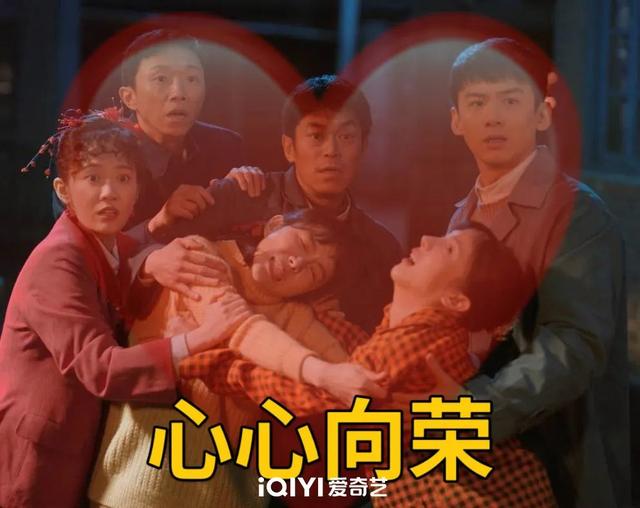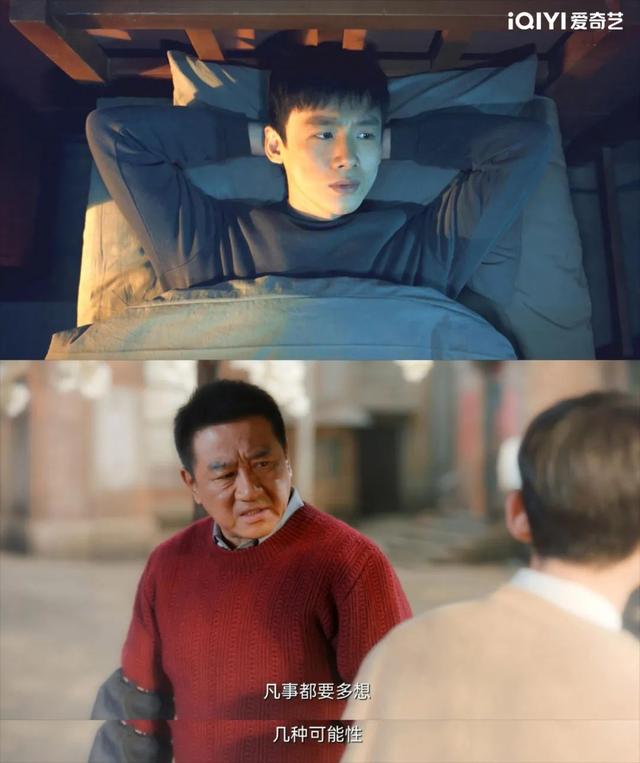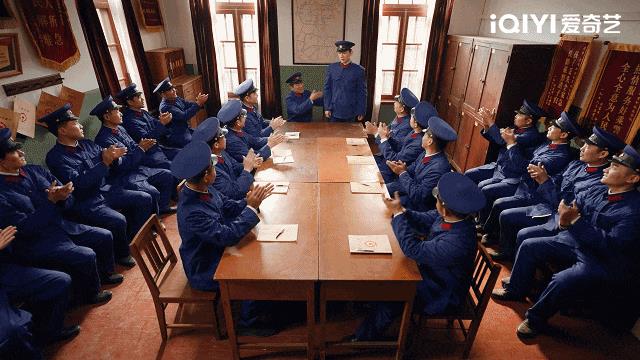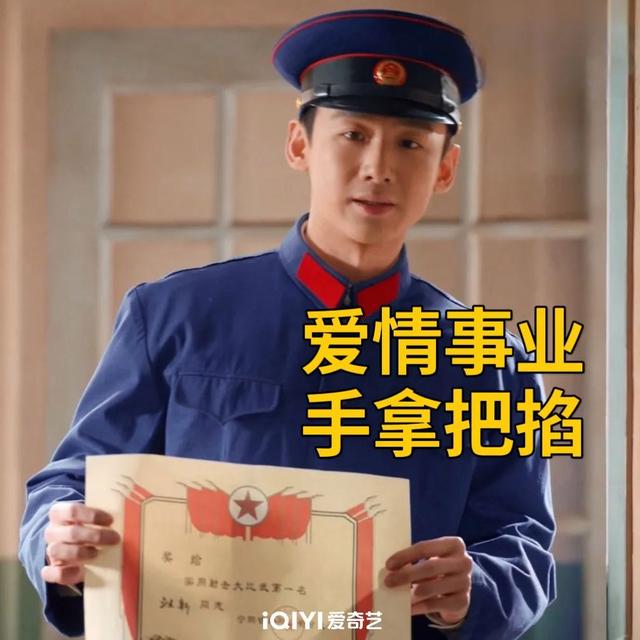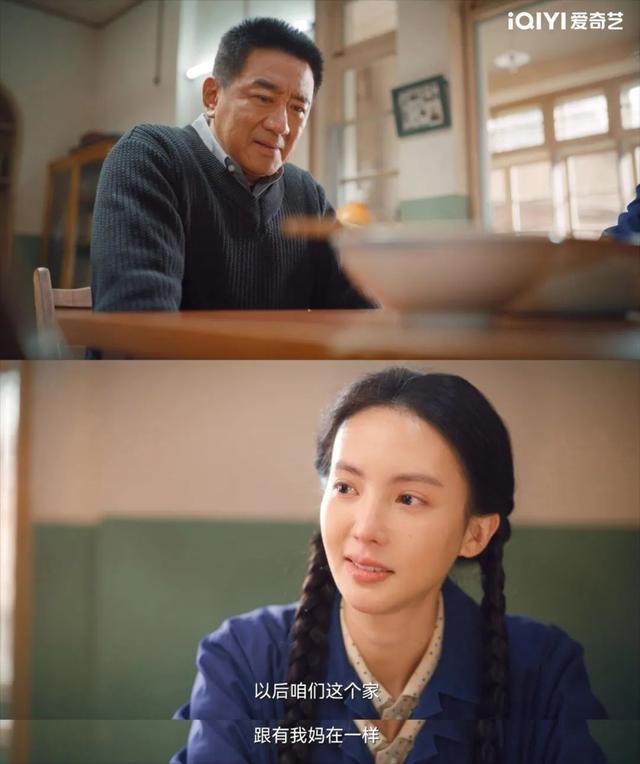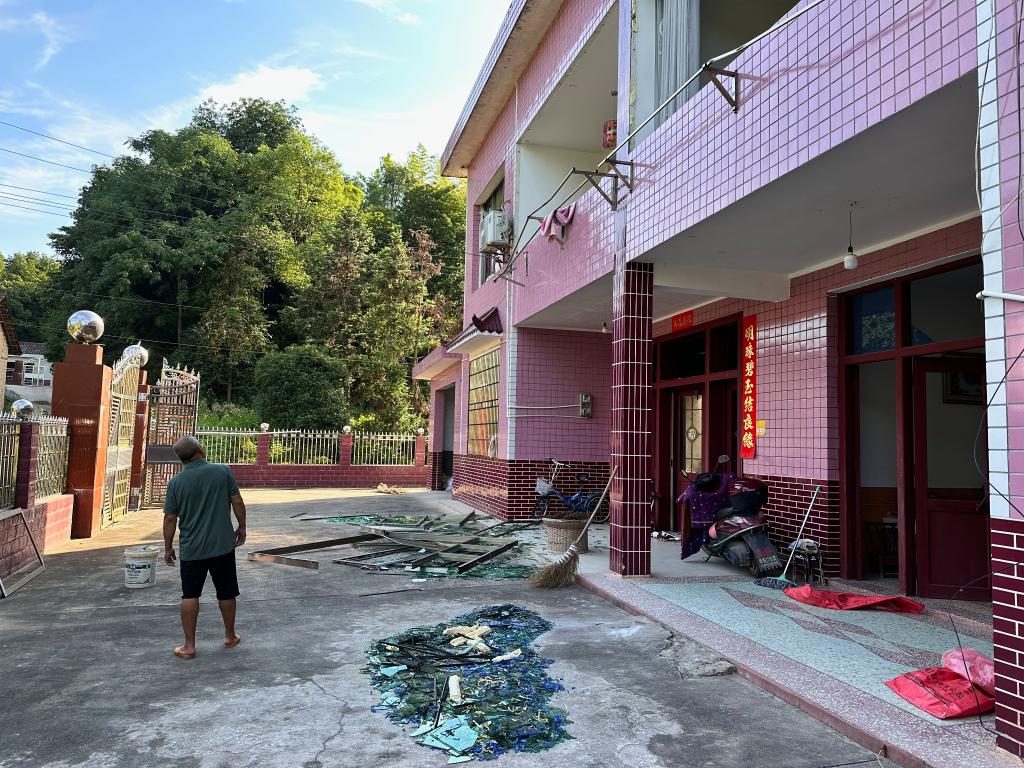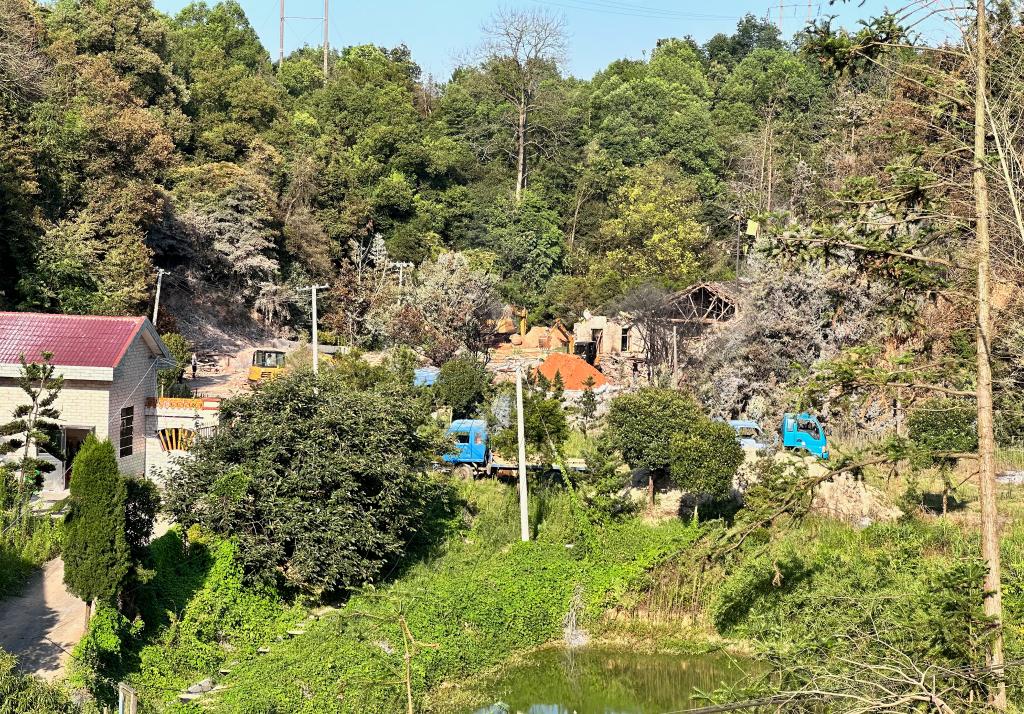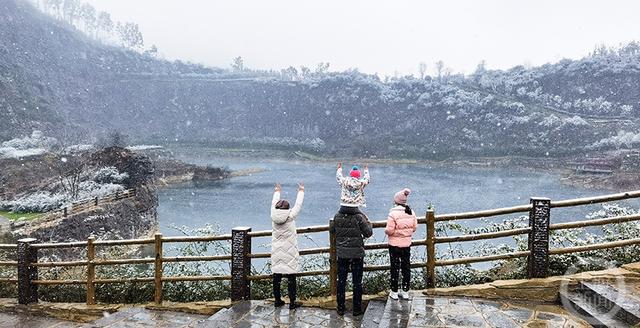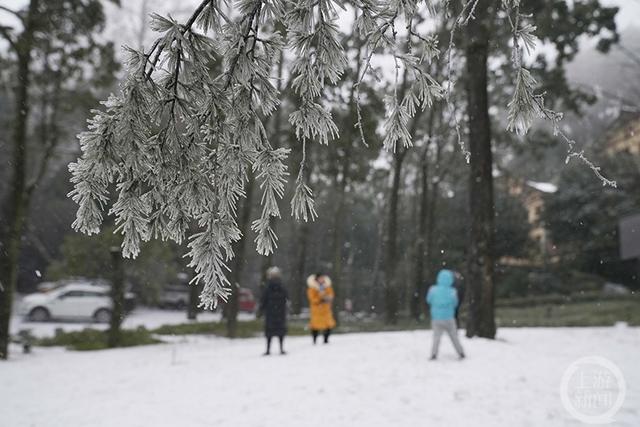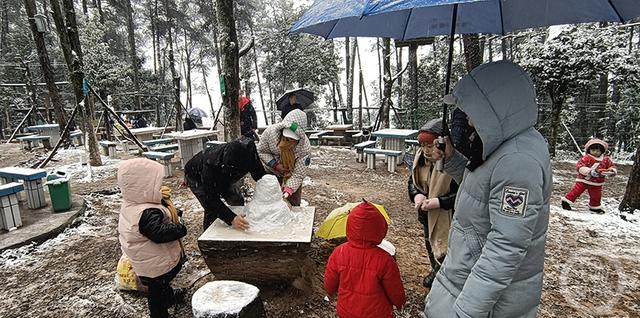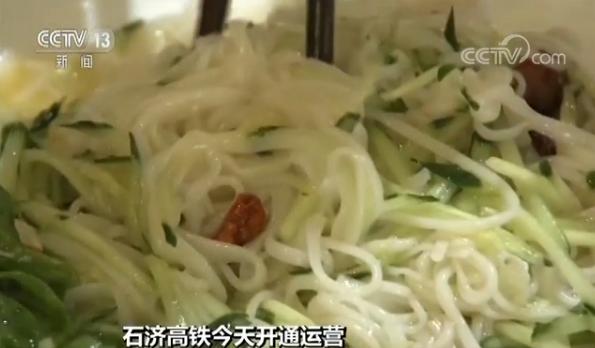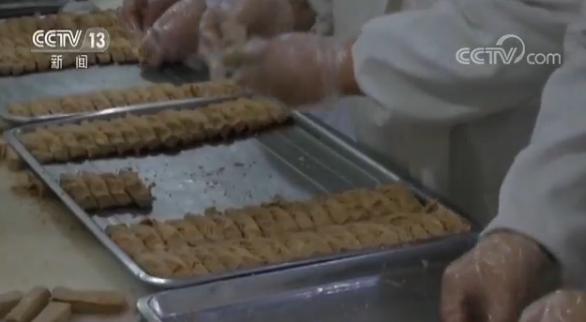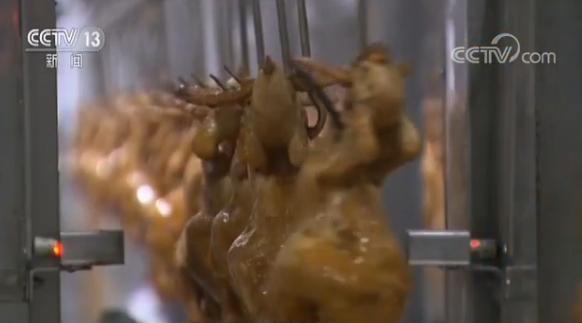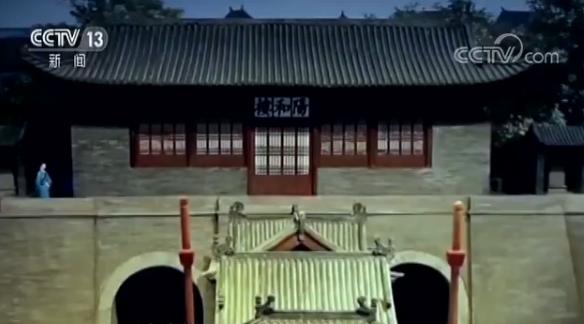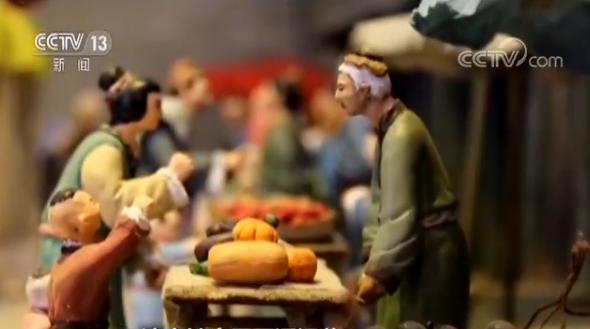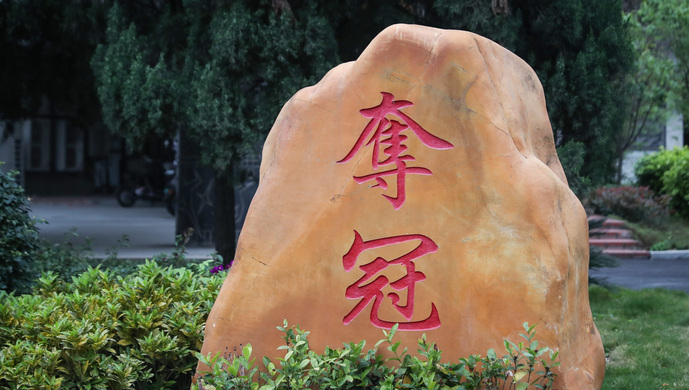

Under the epidemic situation, after nearly 580 days of waiting, China women’s volleyball team finally ushered in its first official match. On May 1st, China women’s volleyball team will take part in the test match of Tokyo Olympic Games in Japan, against the host team Japan. This is the first time that China women’s volleyball team has participated in the official competition since September 2019.
Before going to Japan, China women’s volleyball team had a 50-day special training at Zhangzhou Sports Training Base in Fujian. In the south area of the base, next to the No.1 Hall of China Women’s Volleyball Team, which is full of the flavor of the 1980s, a tombstone stood quietly for 30 years accompanied by two junipers. The tombstone reads: A pioneer of volleyball in China is buried here.
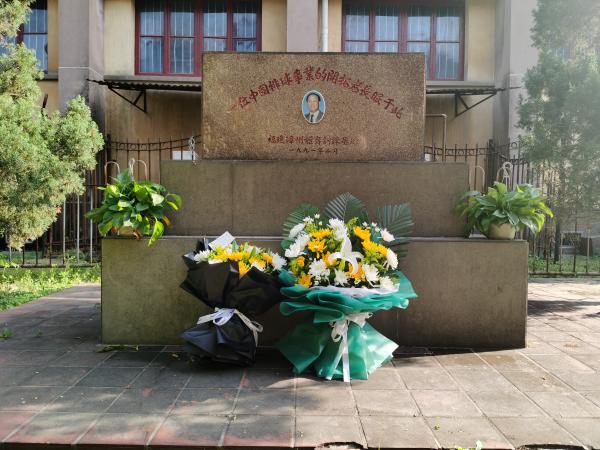
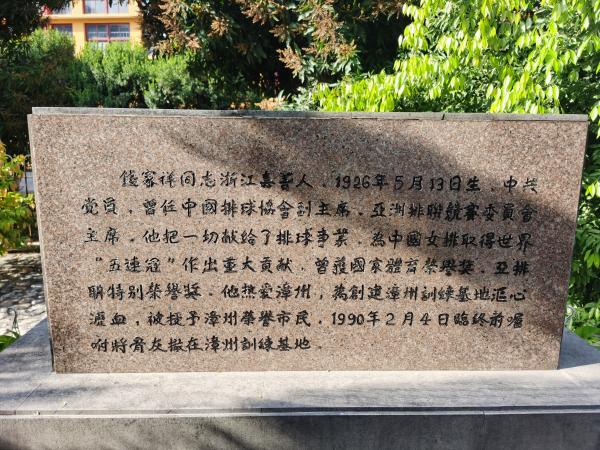
The deceased was Jiaxiang Qian, a famous Shanghai volleyball player, who had been focusing on volleyball all his life and was called "volleyball money". He is also the third head coach in the history of women’s volleyball in China, and has served as the director of the Volleyball Department of the State Sports Commission, the secretary-general and vice-chairman of the China Volleyball Association.
In 1970s, Jiaxiang Qian was appointed by the State Sports Commission at that time to choose Zhangzhou as the volleyball training ground, and transferred his team to this "national training". Therefore, Zhangzhou base not only helped women volleyball team to stage the glory of "five consecutive championships", but also witnessed the great cause of "ten champions" in the future, and became the eternal "mother’s family" of China women volleyball team.
Golden bamboo shed
"The leaders attach importance to it, the masses love it, the products are rich and the climate is pleasant. This is the superior condition for Zhangzhou to build a volleyball base." Zhong Jiaqi, the old director of Fujian Zhangzhou Sports Training Base, remembered these 16 words clearly. He is 87 years old and still has a loud voice and clear logic. Zhong Jiaqi, a Shanghainese, came to Fujian with the South Service Group in his early years. At the age of 25, he became the first director of Zhangzhou Sports Commission, and worked as the head of the base for 17 years, working with Jiaxiang Qian for many years.
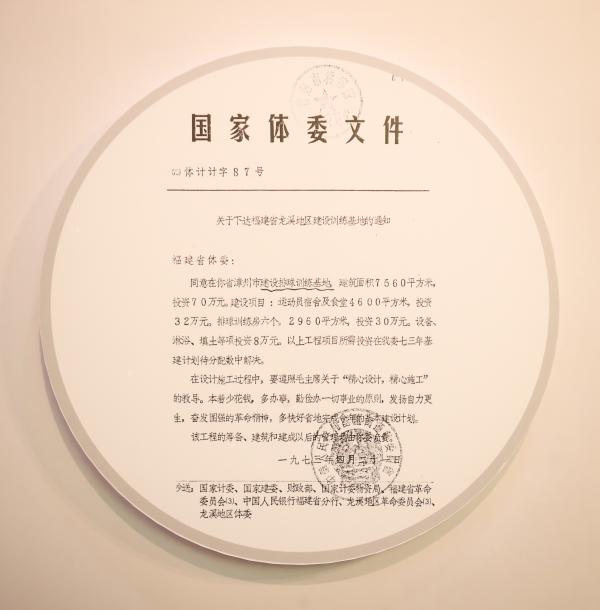
At that time, Premier Zhou Enlai proposed that "sports should be revived". Wang Meng, then director of the State Sports Commission, recalled Zhang Zhihuai, Jiaxiang Qian and other "professionals" from the cadre school.
At that time, the Japanese women’s volleyball team, known as the "Oriental Witch", dominated the women’s volleyball world. In November, 1964, Hirofumi Komatsu visited China for the first time and was received twice by Zhou Enlai, Prime Minister of the State Council, China. On April 21, 1965, at the invitation of Premier Zhou Enlai, Dasongbowen came to Shanghai for a one-month special training for China women’s volleyball team, accompanied by Jiaxiang Qian. The "Devil Training" of Dasong Bowen instilled the concept of "being strict, being difficult, starting from actual combat and training with a large amount of exercise" into China women’s volleyball girls, which was like an awakening for China women’s volleyball team that started from scratch at that time.
After that, the State Sports Commission decided to build a volleyball training base, and Jiaxiang Qian, who was the director of the volleyball department, went to the south to inspect and choose a place to build the base. At the time of the "Cultural Revolution", some local leaders paid attention to it, but it was "congenitally deficient"; In some places, the natural conditions meet, but the leaders know little about volleyball. Some officials even ask: "Is it beneficial to build a base for agriculture and industry?"
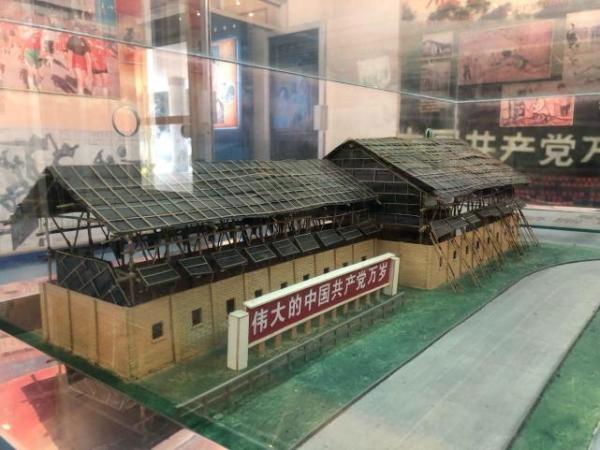
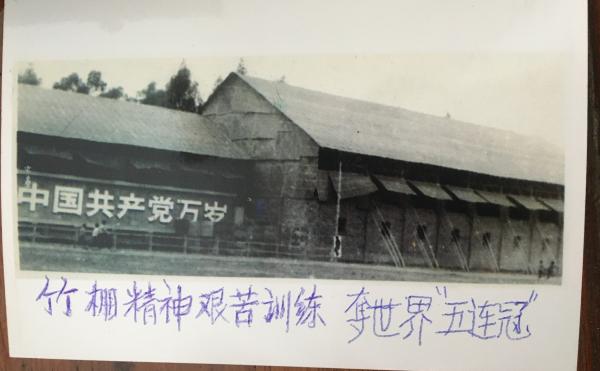
Caption: The "Bamboo Shed Pavilion" was built in 1972, from which the China women’s volleyball team worked hard and practiced their skills, and the China women’s volleyball team stepped onto the podium of the world champion.
Zhang Ran, former vice captain of China Men’s Volleyball Team, recommended his hometown-Zhangzhou, Fujian to Jiaxiang Qian. The average annual temperature here is 21 degrees Celsius, and it is not cold in winter, which is beneficial for athletes to recover their physical fitness after high-intensity training. Volleyball is also very popular in the local area. After the founding of New China, there were 800 amateur men’s and women’s volleyball teams here at the same time, which is the "hometown of volleyball". After reporting to the State Sports Commission and obtaining approval, Jiaxiang Qian decided to make a field trip.
The news that "the volleyball team should choose a base" was sent back to Fujian. Yu Kezhao, then commander of Longxi Military Division, member of the Standing Committee of Zhangzhou District Committee and director of the Sports Commission, was in command. The local finance allocated 30,000 yuan and decided to "make a look" before the inspectors of the State Sports Commission arrived. According to the introduction of people who have participated in the construction of bamboo shed, Yu Kezhao asked his people to mobilize thousands of militiamen, cut down tens of thousands of bamboo to build bamboo shed in Nanjing mountain area of Zhangzhou, and finally built a shed covering six volleyball courts with local bamboo.
After arriving in Zhangzhou, Jiaxiang Qian was tempted after visiting the bamboo shed. During reporting the plan to build a volleyball base in Zhangzhou, he transferred 12 young men’s and women’s volleyball teams to Zhangzhou in the name of the Volleyball Department of the State Sports Commission to start experimental training. Zhong Jiaqi remembers that in December 1972, 12 national volleyball teams gathered in Zhangzhou, and the first national youth volleyball winter training was held in the "bamboo shed" with simple conditions. The purpose of this training is to revitalize China volleyball and focus on training excellent sports teams. At that time, all kinds of statistical tables and notices were posted at the entrance of the station, and the average time of intensive practice for each team exceeded 7 hours every day.
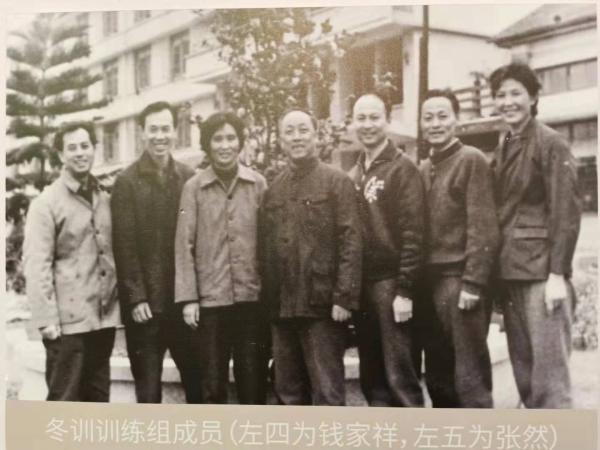
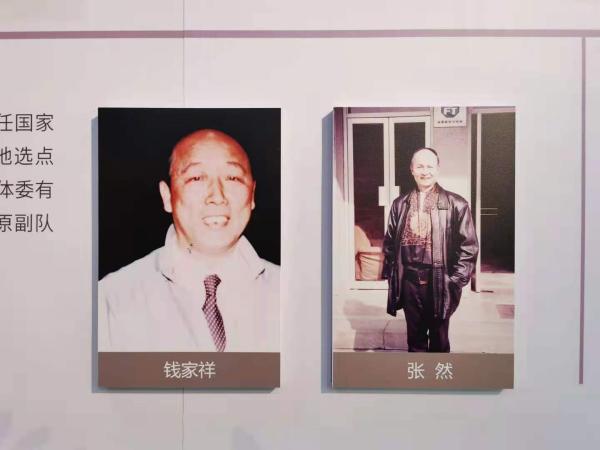
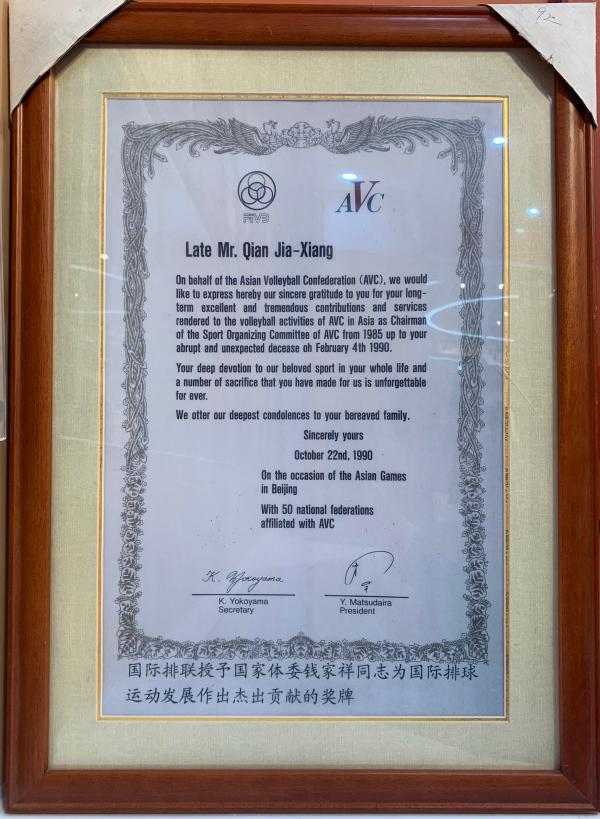
Caption: Jiaxiang Qian and Zhang Ran were both members of the first national volleyball training team in winter. (Source: China Women’s Volleyball Tengfei Memorial Hall)
Once it is found that some teams have good training effects, Jiaxiang Qian will convene a meeting of coaches of all teams in the evening to impart good experiences to all teams in time. "This is our advantage at that time, the national chess game, you chase me, you learn from me, there is no secret between each other. I taught him my good method, and I learned his good method, and everyone made progress together. " Speaking of the enthusiasm of training in those days, Zhong Jiaqi’s eyes were bright and his tone rose several times. "Old money is an expert. He is grasping real things, not shouting empty slogans. It is useless to shout slogans, and training can solve problems. "
Jiaxiang Qian is an expert in technology and well-known in management. On Women’s Day in 1973, the team leader of Heilongjiang Women’s Volleyball Team gave the girls a half-day holiday, but I didn’t expect Jiaxiang Qian to "inspect the post". Under his rebuke, the team leader panicked: "We will make up for this half-day in the evening." That night, the girls returned to the stadium, tumbling and fighting, and practiced until 2 o’clock the next morning, when Jiaxiang Qian came into the gym-he came to check the make-up lessons. The Heilongjiang Women’s Volleyball Team, which took more than half a day off, stayed up all night and practiced until the East was white, which deeply touched the athletes of other teams and put them into intense training.
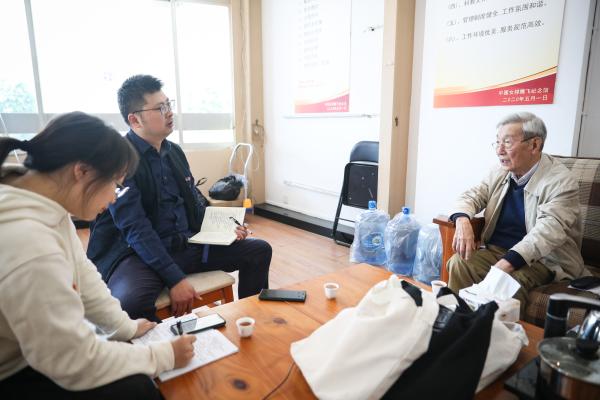
Caption: Zhong Jiaqi (first from the right) is the old director of the base, and Jiaxiang Qian is a good partner. "Training lasts for three months every year, and we discuss our work together every day."
Zhong Jiaqi remembers very clearly that in the first year of Zhangzhou training, the Bayi team and the Shanghai team with excellent conditions did not participate. After the training, the Liaoning team went home and passed by Beijing for a game, and the Bayi team was completely defeated; Similarly, the Shanghai team also lost to the passing Jiangsu team and Zhejiang team. In the second year of national training, Bayi team and Shanghai team volunteered to participate.
The first national training camp was successful, and the training atmosphere of hard struggle formed during it was called "bamboo shed spirit" by the sports community.
Open the door and train.
After the completion of Zhangzhou base, the national volleyball team "opened the door to train" here. As soon as the weekend arrives, the small gymnasium in the south area of the base is full of people, which is as lively as Chinese New Year. The audience who came to watch the volleyball match helped the old and took care of the young, sitting on the floor, including the PLA, workers and farmers. A wonderful spike, an effective block, can attract applause from the scene, and it is enjoyable.
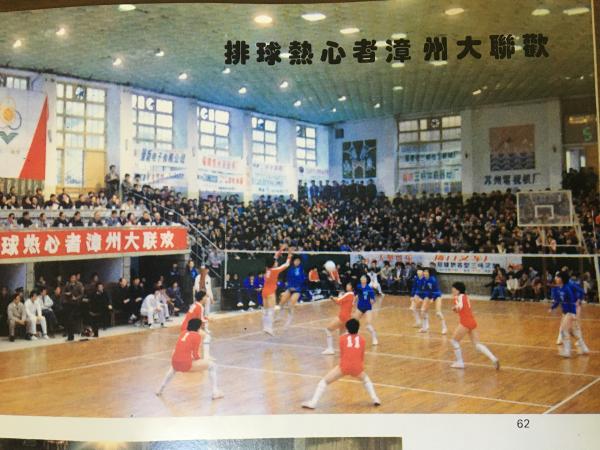
Caption: The women’s volleyball team trained in that year entered various counties and cities in Zhangzhou to experience the feeling of actual combat.
In the 1970s, it was undoubtedly a blessing for ordinary people to watch high-level volleyball matches on the spot without TV sets. In addition to Zhangzhou City, Jiaxiang Qian also led a team to Zhangpu County and Longhai County to play games. Once I went to Fotan town, there was an open-air basketball court in the town, surrounded by private houses. During the game, the upstairs and downstairs were full of people, and the audience was crowded with people, and the cheers were like the tide. That competition left a photo, which was a picture of the crowd waving and encouraging to the athletes.
In summing up the growth law of players and teams, Jiaxiang Qian once had a judgment: national players "take three years to form, five years to become useful, and eight years to become useful", three years to lay the foundation and become qualified provincial athletes, five years to become the main force of the national first-class team, and after eight years of tempering, they become candidates for the national team. For a team, to be effective, it is necessary to play more than 200 domestic games and more than 100 international games every year.
Where did so many competitions come from? Jiaxiang Qian’s answer is: practice is the competition, and competition promotes practice. So every weekend, he organizes open-door competitions and training. At the same time, it is also to make young players less arrogant and arrogant. With more audiences, athletes will practice harder.
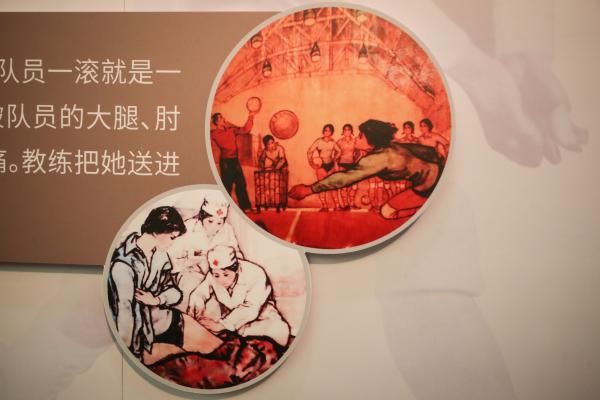
In the era of planned economy, the meat, rice and eggs in the base need to be allocated. There is another consideration in open training, which is to solve the problem of feeding the trainees. Also invited to watch the training were the heads of supply and marketing cooperatives in Zhangzhou counties and other units. Watching the ball flying all over the court, the players dived and tumbled again and again, and sweat, blood and concrete mixed together. Those responsible persons were all moved by the hard work of the women’s volleyball girls and said, "Let me know what the training team lacks."
In Zhong Jiaqi’s view, "the effect of this kind of open-door training for old money is very good. The atmosphere of the competition has been greatly improved. Everyone is chasing after me, not giving up, making rapid progress, and talents are thus selected. " After four years of winter training in Zhangzhou, the technical and tactical level of volleyball in China has advanced by leaps and bounds, and the opportunity to re-establish the national women’s volleyball team is ripe. In the spring of 1976, Yuan Weimin, the coach of the national women’s volleyball team, came to Zhangzhou base to choose a general, and Jiaxiang Qian mobilized all teams to actively train talents for the national team. Cao Huiying, Chen Zhaodi, Yang Xi and others participated in the first batch of training in Zhangzhou.
In 1979, in order to rush out of Asia, China women’s volleyball team took the Japanese and South Korean teams as catch-up targets. Jiaxiang Qian hung the slogan "Fight hard for three to five years and defeat Japan and South Korea" on the wall of the training hall.
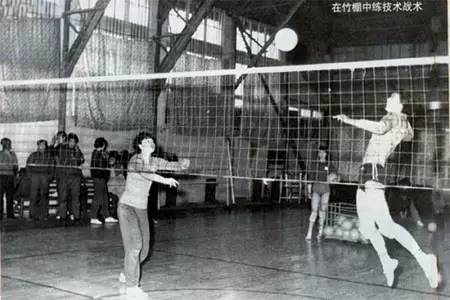
Caption: In those days, China women’s volleyball players practiced their skills in the bamboo shed.
Japan has noticed the progress of China women’s volleyball team. In 1980, Shigeo Yamada, Minister of Strengthening Department of Japan Volleyball Association, led the second Japanese team to visit China and came to Zhangzhou. He said to Jiaxiang Qian, "Mr. Qian, you are very good at choosing a site. It is the same latitude as Cuba, and 25 degrees north latitude is the golden climate ecological belt. Training here can improve the bounce."
Jiaxiang Qian didn’t expect this at all, but the progress of volleyball in China proved that the location of Zhangzhou base was correct. The State Sports Commission mobilized six first-class teams to face the Japanese second team. In the first six games, the China team won all the games, and finally 17 wins and 7 losses. Shigeo Yamada commented at that time: As far as the base facilities are concerned, it is only the level of Japan in the 1950s, but the practice of centralized team training and national chess competition for sending players is the first in the world.
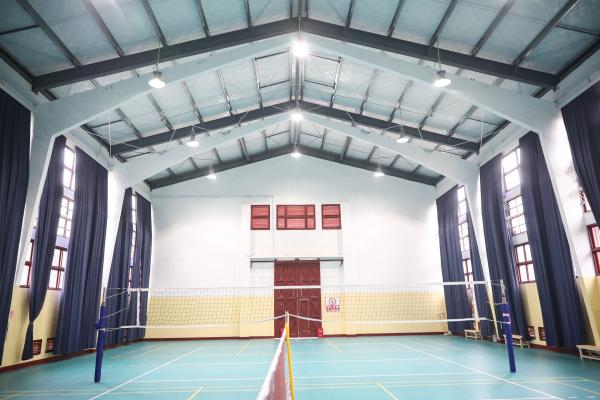
Zhong Jiaqi said with emotion: "Through the national training at the base, six teams in China have reached or even surpassed the level of the Japanese national second team. Do you think the level of the China women’s volleyball national team can be low at this time?"
On November 16th, 1981, China women’s volleyball team won the third Women’s Volleyball World Cup, achieving a breakthrough in China’s three goals. At this time, the Zhangzhou base, which was established for 9 years, gradually became known to outsiders, and foreign media called it a "secret base". Subsequently, China Women’s Volleyball Team began the journey of "five consecutive championships", and several generations of China women’s volleyball team made it a well-deserved "cradle of champions".
Loyal souls stay in the cradle
In June 1978, Zhong Jiaqi, who had been away from the Sports Commission for 14 years, was given high hopes and returned to Zhangzhou Sports Training Base as the director. At that time, China women’s volleyball team had just been reorganized for more than a year.
"How to ensure that athletes can have sufficient nutrition when they receive large-scale training, so that they can eat well, eat satisfactorily, and practice better?" Zhong Jiaqi and Jiaxiang Qian, who have been athletes, hit it off: We must do a good job in ensuring the life service of athletes.
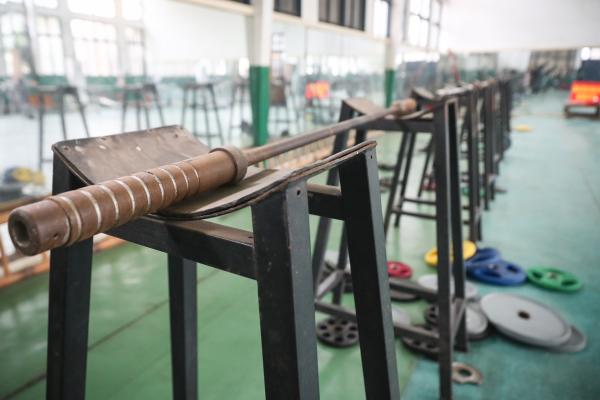
During the early training period, there were hard-trained teams dragging their seats, and as a result, they could only eat cold leftovers when they returned to the cafeteria. "Jiaxiang Qian was very angry at the time and made it clear to me that the last sports team that finished training should not only eat hot dishes and hot meals, but also eat better than the team that finished training early!" Zhong Jiaqi introduced that by strengthening the management of canteens, all teams are also guided to train hard.
Jiaxiang Qian also took the chef to the training ground and let the chef watch the team members’ hard training. "Once it was close to dinner, I watched the China women’s volleyball training at the venue, and Lang Ping was hungry and wanted to hit 100 good shots. Eat after practice, and eat after class if you don’t practice well. Not only her, but every member of the China Women’s Volleyball Team is so hard. " Yan Wenzhong, an old chef, recalled that by approaching the women’s volleyball players, the base staff had a sense of responsibility as a "family member". "As long as the team is still training, our chef will never rush and never leave early." Today, Zhangzhou base still has the tradition of letting the team that finishes class at the latest eat the best meals.
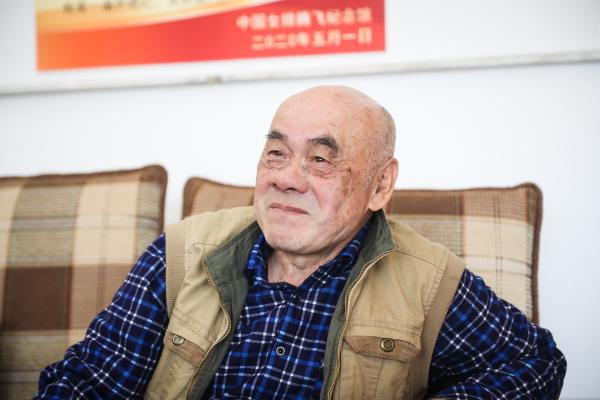
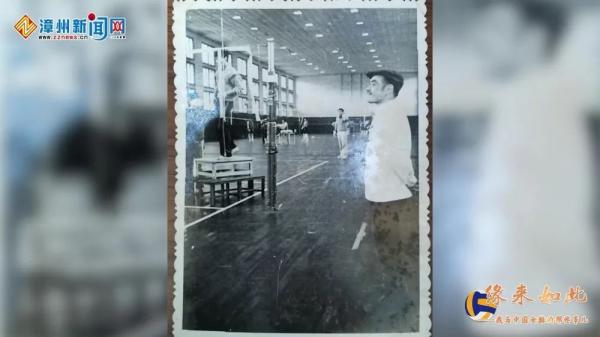
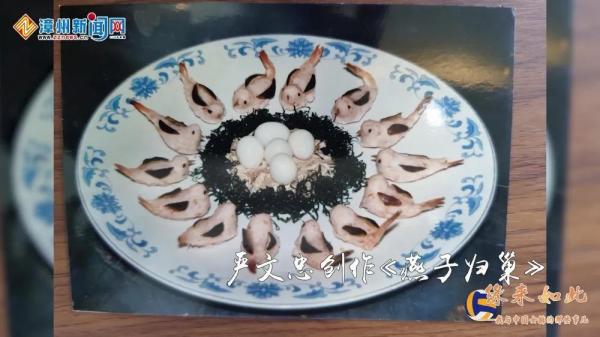
Caption: Before retiring, Yan Wenzhong was the head chef of the base, and once specially launched the "China Women’s Volleyball Recipe" to ensure that the soldiers could "eat" after hard training.
"When Lang Ping was a team member, the women’s volleyball team had mung bean soup at noon and longan porridge at night. Just after exercise, you can drink sour plum soup to appetize, and nutritious things can be eaten." Yan Wenzhong said that under the influence of Jiaxiang Qian, he will also take the initiative to observe the eating habits of athletes and keep them in mind silently: Yuan Weimin loves seafood, Zheng Meizhu and Hou Yuzhu are used to sweet and sour taste, Lang Ping is the most appetizing to eat tomatoes mixed with sugar, Chen Yaqiong is the most fascinated by oyster frying, Lai Yawen and Su Huijuan have a preference for grouper and stewed pigeon soup …
When the conditions in Zhangzhou base were difficult, many homesick women volleyball girls would secretly shed tears during the Spring Festival. Jiaxiang Qian arranged recreational activities while doing the girls’ ideological work with the coaches. At the Spring Festival party, the girls wrote and performed their own programs, and Lao Qian also performed on the stage, which made the girls laugh. For 13 Spring Festival holidays, Jiaxiang Qian spent the holidays with the team at the base.
In the spring of 1990, Zhangzhou began to welcome the winter training of the first-class national women’s volleyball team. The staff had already made the bed for Jiaxiang Qian and waited for him to command the national training again. Unexpectedly, the bad news came suddenly: 64-year-old Jiaxiang Qian died unexpectedly in Beijing. On his deathbed, he told me to scatter half of his ashes in Zhangzhou Sports Training Base.
Wang Jiawei, the former coach of China Men’s Volleyball Team, greatly admired his predecessor Jiaxiang Qian. In 1998, he led all the men’s volleyball soldiers to pay homage to Jiaxiang Qian’s tomb. This China Men’s Volleyball Team led the team to regain the Asian Championship after 18 years’ absence, successfully defended its title in the Asian Championship in 1999, and won the Asian Championship in 1998, winning the triple crown in Asia. Wang Jiawei also funded the renovation of Qian Lao’s tombstone in the base.
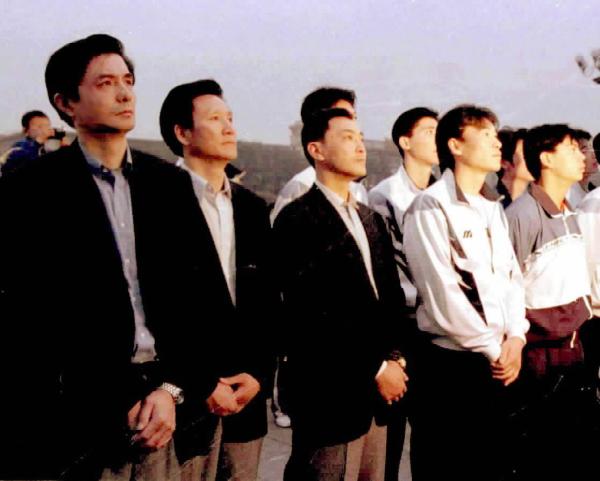
Caption: Wang Jiawei (first from left), former head coach of China Men’s Volleyball Team, reveres his predecessor Jiaxiang Qian.
Lang Ping is also in Zhangzhou base, "Xiao He just showed his sharp corner". Lang Ping’s Autobiography published in 1999 has such a passage on page 82: "There is also our old-timer Comrade Jiaxiang Qian, who did a lot of work for the take-off of the women’s volleyball team, and he was still running for the cause of the women’s volleyball team until he died of serious illness. Therefore, as long as I have the ability, I have to contribute everything I can to the China women’s volleyball team. "
Wang Erkang, a former honorary team leader of China Men’s Volleyball Team, said: "China Women’s Volleyball Team is a heroic group, especially in the low valley, there are still a group of people who work silently without paying back. It is because of their silent efforts that China women’s volleyball team has achieved today. In my impression, Jiaxiang Qian is a predecessor who should not be easily forgotten. "
This spring, flowers are sent to Jiaxiang Qian’s grave from time to time, and evergreen cypress trees are flourishing, which is as endless as the spirit of women’s volleyball.
Editor-in-Chief: Chen Hua
Author: Liu Xueyan Chen Hua Shi Jiani
Text Editor: Chen Hua
Title source: Haishar




















